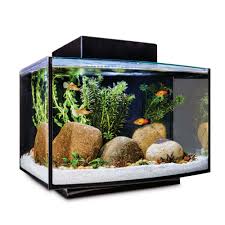
By the time we get down to making Feng Shui recommendations for the interiors of a home or business, we are focusing on the details. And yet, this is what many consumers think is the grand total of a Feng Shui analysis.
Historically, the lay of the land was of premiere importance. How a person or a whole town prospered came from the influence of nearby water features, be it the ocean, a river, lake or at least a pond. The “cement” pond, as the Beverly Hillbillies used to refer to their swimming pool, is also a sizable water feature for any property, containing thousands of gallons of water. And yet, by the time we are introducing an interior water fountain holding mere quarts of water, this is a detail.
Likewise, large groups of people in towns or cities can be directly influenced by the hills and mountain ranges close by. Are those mountains full of animal life and greenery? (Yang mountains). Or are the mountains dry and seemingly lifeless like a sand dune? (Yin mountains). The quality and energy of a mountain can determine the health and well-being of the people who live close by. When we get to the miniaturized “virtual” mountain such as a brick pillar mailbox in front of a house, boulders, or the raised flower bed in the back yard, this is a detail too.

When Feng Shui started its trendy craze in the 1990’s, people were using the phrase “The Art of Placement” to describe Feng Shui, and yet this was really diminishing the true scope of Feng Shui, to say the least. Feng Shui book sections were mingled with the Interior Design and Organizing sections at Barnes & Noble Booksellers. Consumers were given the impression that they could win the lottery by moving a piece of furniture.
The natural, and now man-made, exterior landscape can have just as much, if not more influence on your life as which way your bed is turned or your desk arranged. But we do what we have control over. Even I, as a consultant, am not going to harp on the fact that some of my clients live too close to the freeway or some other negative outside feature which cannot be changed. It’s a done deal. Let’s focus on something we have control over: the interiors.
During the house hunting phase however, I try to give my clients as many tips as possible for avoiding those big ticket items which cannot be changed. We try to narrow the search with common sense observations that take no formal training. I even have an ebook titled Feng Shui Tips for House Hunters, to help people rule out the places you just want to avoid, since there are no great counter-measures for them. This would include living next to a cemetery or a toxic-fume emitting factory or a hospital.
Going back to the “details” which we have control over, I must admit that I am actually impressed much of the time at how the small additions or subtractions from a living space can in fact make a difference in a person’s life. Sometimes just that vase of flowers in the right location can jump start your love life. Sometimes just that aquarium in the right place can land you the job you have been praying for.

How do these small maneuvers even work? They work by changing the magnetic field that you dwell in. The chain of command is that if you balance your immediate environment, your own dwelling and your own body can then become a better satellite dish for attracting the positive and repelling the negative.
There are many other disciplines and modalities where you can balance yourself and your environment and they work similarly to improve the quality of your life and help you be more in charge of your own destiny.
Author: Kartar Diamond
Company: Feng Shui Solutions
From the Feng Shui Theory Blog Series
